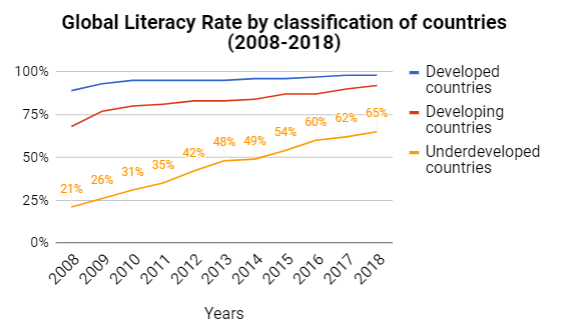LESSON GOAL
Let’s check our lesson goal.
In this material, you will learn the words and phrases that are used when you talk about free education and express your opinions about specific topics.
In this material, you will learn the words and phrases that are used when you talk about free education and express your opinions about specific topics.
この教材では、無償教育に関連した語彙や表現を学び、特定の話題について意見を述べる練習をします。
PART A_1
Choose the correct idiom to complete each sentence.
PART A_2
| skipping classes | put their thinking caps on | teacher’s pet |
| goofing around | bookworm | dropout |
| 1. | Her room is filled with books because she loves reading. Her friends often describe her as a __________. |
| 2. | David is a __________ because he’s at the top of his class, and he is also an active writer of their school newspaper. |
| 3. | Hannah told her groupmates to __________ as the Science Quiz Bee will begin. |
| 4. | His teacher told his parents that he committed a school violation because he has been __________ for three days. |
| 5. | Johnny spent all his weekend __________. As a result, he got a failing grade on his exams. |
PART A_3
Make sentences using the given idioms.
PART A_4
| 1. skipping classes | |
| Answer: | |
| 2. put their thinking caps on | |
| Answer: | |
| 3. teacher’s pet | |
| Answer: | |
| 4. goofing around | |
| Answer: | |
| 5. bookworm | |
| Answer: |
PART B_1
Study and analyze the graph carefully.
PART B_2

PART B_3
Use the following words to explain the data.
PART B_4
PART C_1
Let’s talk. Please answer my questions. You may ask me questions too.
PART C_2
| 1. | Do you think free education is applicable to all countries? Why or why not? |
| Answer: | |
| 2. | Would you like your country to have free education in all schools and universities? |
| Answer: | |
| 3. | How is the education quality in your country different from other countries? |
| Answer: | |
| 4. | Why is education important to a human’s life? |
| Answer: | |
| 5. | Who do you think would benefit the most if all countries offered free education? How do you say so? |
| Answer: |
REVIEW AND FEEDBACK
Now, let us review the things that you learned in this lesson.
ではこのレッスンで学んだことを振り返りましょう。
(Please give a short feedback on how your student did in your class.)
| Grammar 文法 |
Pronunciation 発音 | Vocabulary 単語 |
Comprehension 理解 |
|
|---|---|---|---|---|
 GOOD GOOD |
文法の誤りはほとんどなく、完全な文章で話すことができる | ほとんどの単語をはっきりと正しく発音することができる | 習った表現を適切に使うことができる | 文章を理解し、質問に正しく答えることができる |
 FAIR |
文法の誤りはあるが、完全な文章で話すことができる | 発音の練習が必要な言葉がいくつかある | たまにミスはあるが、習った表現を適切に使うことができる | 文章を完全に理解するのは難しく、質問に正しく答えられないときもある |
 POOR |
文章で話すのは難しく、単語だけで話すことができる | 発音の練習が必要である | 習った単語と表現を少しだけ使うことができる | 文章を理解するのは難しく、質問に答えるのは難しい |
レッスン教材に関するアンケートのお願い
レッスン教材の改善・拡充を図ることを目的とし、アンケートを実施しております。
以下のURLからアンケートにお答えいただき、 ご意見・ご要望をお聞かせください。
アンケートはこちら